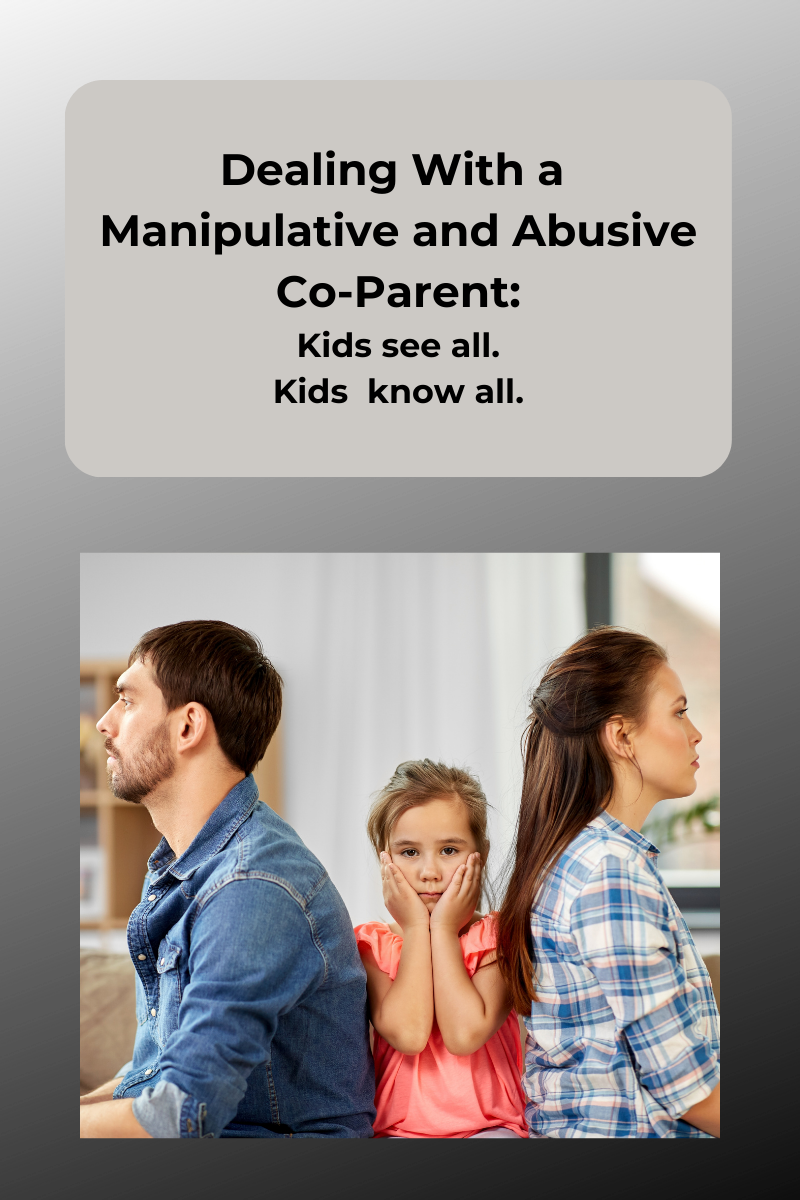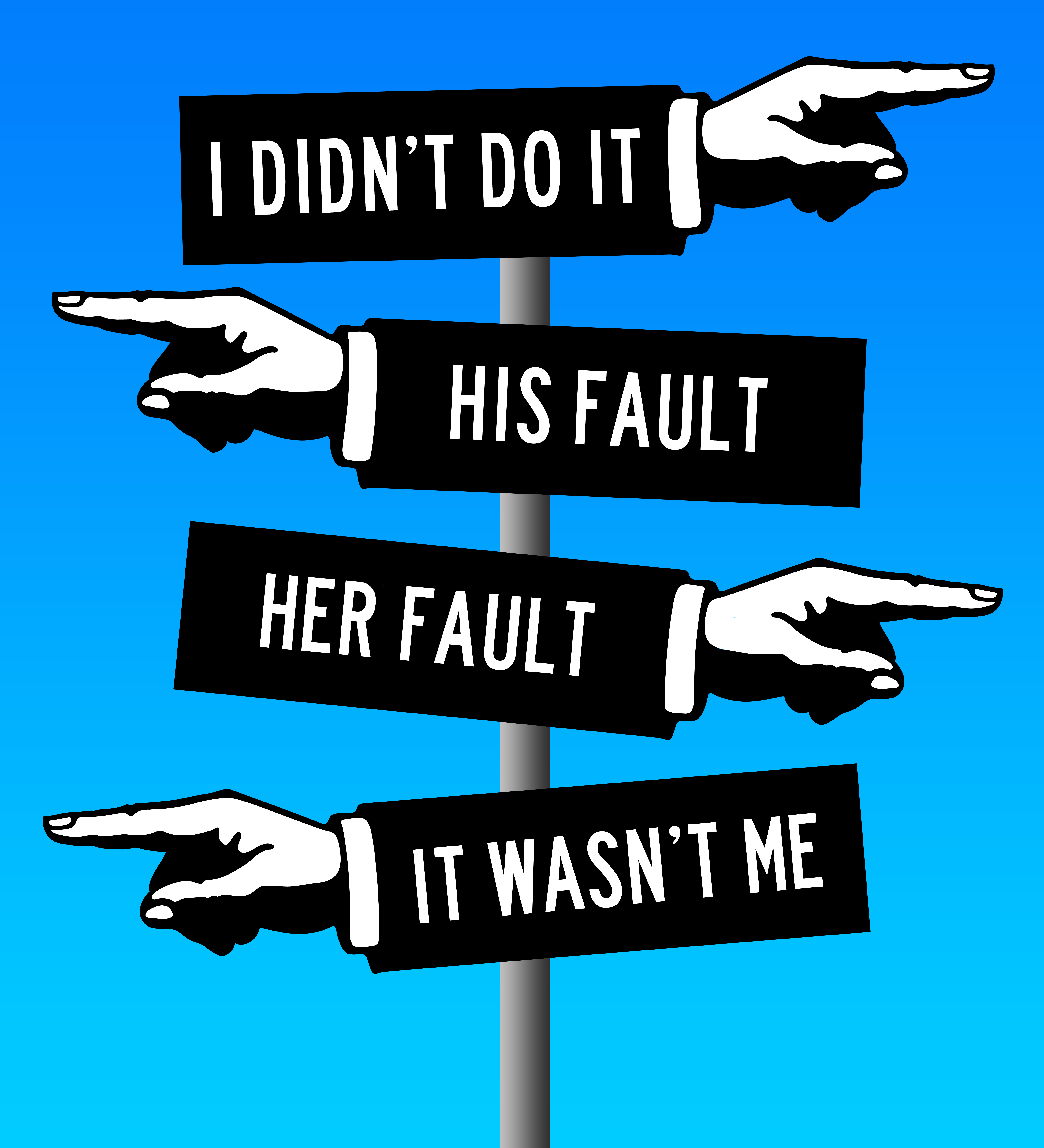Your Kids Will Figure Out Who is Unreasonable After Divorce.
Kids Catch On to Parental Alienation, at One Parent’s Peril.
On my quest to end what is known as the nasty divorce, I encounter many interesting situations. One of the most perplexing ones involves one spouse wanting to leave and the other threatening them if they do. Let’s see; if my partner tells me he will destroy me and my life if I leave, he’ll take the children, tell them what a horrible person I am, and call my friends, family, and workplace to tell them I’m crazy, then why on earth would that influence me to stay? As illogical as it is, quite a few of my clients have experienced this over the years.
If it happens on my watch with both partners present, I’ll shut it down immediately and explain to them what I am now telling you: there are thousands of reasons to be reasonable during a divorce and zero to be otherwise. When you have children, there is no other choice.
Threats of parental alienation, child custody cases, or taking younger children away send shock waves of fear into my clients who are just looking to leave someone they see as verbally and emotionally abusive. Verbally and emotionally abusive people do not like themselves and do not like or trust others, which can be a very dangerous way to be. Only people full of self-loathing can be nasty to other human beings. Harming others is too emotionally painful for the rest of us.
Abusive spouses are immature, angry, and looking for trouble. They also have most likely been abused in their lives, and they often don’t see it as doing anything wrong. Once a person has been abused or been treated as a family scapegoat, the pattern is that they will now scapegoat someone else. At the end of the day, abusive people are often hopelessly mentally disordered and unlikely to change. They want power and control over every domestic situation; they often think of a spouse as a possession, and children are something you use to punish your spouse for entering into the divorce process. In short, they are human tornadoes who tear up themselves, their family, and the town, all because they have done things (they don’t remember or deny) that caused their spouse to want to leave.
How does anyone with half a brain end up married to an abusive person? It’s quite easy. Abusers know how to behave long enough to seduce and attract a mate; they can be charming until they confirm you are all in and solidly attached, and then, you will start to see things. Also, they don’t usually look like escapees from an insane asylum. Like a wolf in sheep’s clothing, they may appear to be good partner material on the exterior, successful, intelligent, and nice-looking. But once a partner has relaxed into the relationship and decided they want to commit, the cracks and red flags will start to appear … they “don’t like” you going out with your girlfriends; they want to go with you on errands, to the nail shop, or out shopping. “Why did you buy that?” “Where were you?” “Don’t wear that.” “Why were you late?”
They may not want you talking to your extended family unless they’re around, and they don’t trust your friends: “They’re bad influences.” In the end, they can do whatever they want when they want, but they don’t like it when you do. They are a human tracking bracelet, watching every move you make and deciding whether they approve, ordering you to align with what makes them comfortable, no matter how unreasonable.
Judges won’t take children away unless it’s really, really bad.
Females can engage in domestic violence and abuse, but in my practice, it has almost always been a female being threatened by her husband. The wife, who has been coming to see me and by every appearance is a good, well-meaning, and decent person, will call and tell me what has happened, the threats delivered and all the nasty actions they’ve said they’ll take, and I say, “No judge will let the children be taken away from you like that; in fact, they don’t even want to hear about it.”
Although there are things people being harassed or threatened can do within the law, like get a court order of protection or restraining order, these things only go so far. Abusers are boundary offenders par excellence; they never even think of restraining themselves in most cases. Still, I ask clients to document and record texts, conversations, and anything questionable they do so they’ll have it as their own leverage if they need it.
It never occurs to most abusers that they may be in danger of losing access to their children in a custody battle if they continue to engage in verbal and emotional abuse and threaten to do bad things. I’ve had at least one client’s estranged spouse lose parental rights over such shenanigans, and I was relieved to see it happen.
Adversarial divorce proceedings bring out the worst in unstable and emotionally immature people and some who you thought were pretty solid. That is one of many reasons I suggest never hiring an adversarial family lawyer and only going the collaborative divorce route. Traditionally trained family law attorneys use verbal and scribed daggers to intimidate and scare the opposition to get their clients the best deal, and I think it’s time we put them out of business for good. In my new world order, it will be nothing less than shameful to engage in a nasty divorce when children are involved.
I do understand and have seen clients who are so unreasonable and ridiculous that they would never be capable of well-meaning negotiation and exhibiting emotional maturity, taking the high road attitude and restraint in which an amicable divorce takes place. Certain disordered people operate from an “If you’re not with me, you’re against me” attitude and a go-to strategy of vindictiveness. Unfortunately, hiring a bloodthirsty and conscienceless traditional family lawyer might be your only option in dealing with these types, and I’m so sorry about that.
What to do when your toxic ex influences your children negatively about you.
This has happened to so many people it’s ridiculous, including me. Though the rule of thumb in handling divorce is it is in children’s best interests to never talk about your ex with young children positively, negatively, or anything in between, except regarding logistics, my experience is that very few people do it. With older or adult children, they at least can tell you, “Stop it, I don’t want to hear it.” But young children don’t have those processing skills and are gullible and easily influenced. Manipulative parents know this.
When my children were small, their dad often said, “You know how your mother is,” and he wasn’t being complimentary. No doubt I was the fun parent and wasn’t as strict and into a regimented routine as he was, but my way of raising them was easygoing and fine.
It became obvious that he was perpetuating the idea that his home was the better, more responsible household. There was something wrong with me because I wouldn’t push them to do their homework or be after them about whatever project they had to do. I wasn’t raised with micromanager parents; I did my homework and projects without family member oversight, and I appreciated the freedom and trust in me. But arrogant and grandiose people with a better-than attitude always think their way is best and have contempt for those who do things differently.
Still, this pattern continued; they would come home and tell me things he said and distanced themselves from me over time. They had bought into his worldview that he was a better parent than I was, but only briefly. I knew when they distanced themselves that, they would soon figure it all out on their own. Children always do.
As they grow, children’s brains develop, and they enter into new developmental stages where they can process information with more of a critical eye. When a client feels that their ex has turned into an alienating parent, I tell them to hang on because the children will come back around. And, when they do, the tables will turn, and the children will be furious with the ex who tried to influence them in that way. I have seen cases where the children became estranged from the parent who demeaned or misled them about their mom or dad, but no matter what, the parent-child bond is enormously strong and difficult to break, and they almost always wake up and return.
Could I have gotten my ex to stop doing what he was doing? Can anyone? It’s not even worth your breath to try, in my opinion. If you could reason with each other, you’d still be married, and since we can’t control anyone, I say, leave it be. Also, it serves no positive purpose to run back and forth between households, saying, “The kids said this, the kids said that.” Stay in your lane, mind your own business, and trust the universe that it’ll all come back around.
Yes, immature ex-spouses who feel singed by an unwanted divorce may take pleasure in not cooperating as they should. And anyway, if they were wonderful and had the children’s best interest at heart, they wouldn’t be talking about you to your children in the first place, right?
Redemption Day.
The day finally came when my children thawed and returned into my fold wholeheartedly. I remember my son and daughter walking in the front door of my house after being dropped off by their dad one Sunday afternoon, and my son said, “We think we know why you divorced dad.”
“Yep,” I thought. “The spell has been broken. They see it, and I never had to say a thing.” That’s how it works, but you must be patient and let things play out. And yes, that may mean experiencing some distance between you and your children, but it almost always works out as it should.
Soon after, my children began to pepper me with questions about our divorce, which I answered honestly, on an age-appropriate basis. They were growing up and trying to understand us and what happened.
Often, when I tell clients they must endure those times when their children are distancing or alienated from them, their eyes widen and bulge in abject terror, signaling that I am asking the impossible. I get it. Still, we are grownups and must let others be who they are and where they are at any given time, even our children. The ultimate codependent behavior is allowing your well-being to depend on certain things being true. For example, “I am happy only if my children think highly of me.” That’s not emotionally healthy and not a good idea or way of being for you or your children.
Family Therapy for Co-Parents.
If you have read all the recommended books (See below) on a successful post-divorce co-parenting relationship and perhaps taken a court-ordered educational class on the same, then in theory, you should be able to manage joint custody in ways that are in the best interest of your children.
If either partner starts any toxic parent funny business and veers off course, do seek a family therapist who specializes in divorce therapy and co-parenting. These specialists will provide a safe space for each of you to communicate and learn how to help you come with a parenting plan that works in the best interest of all.
Just because you had an unhappy marriage doesn’t mean you can’t belly up to the bar and take the high road now because it is the one thing your children really need. If your ex is absolutely impossible and toxic, you might have to visit a family court to talk about getting them to control themselves and figure out what is the best thing for your children, but I sincerely hope not. The courtroom is usually not healthy for families, though if things are really terrible, it may be your only choice.
Oh, the tangled webs we weave, all because we can’t, or won’t, get along.
Recommended books for post-divorce co-parenting*:
- Helping Children Cope With Divorce by Edward Teyber.
- The Co-Parenting Handbook: Raising Well-adjusted and Resilient Kids from Little Ones to Young Adults Through Divorce or Separation by Karen Bonnell and Kristen Little.
- Helping Your Kids Cope With Divorce: The Sandcastles Way by Gary Neuman.
- I am an Amazon affiliate and may receive a small percentage of the sales at no extra cost.
Have a question? If you have a subject you’d like to see me write about or a situation you might want to present that I could discuss in a blog, please email me at [email protected].
We’ve got lots of news and exciting things going on in the relationship realm … so I’m preparing to send a regular newsletter with the best relationship advice on the planet. To get on my email list, click here.
Becky Whetstone, Ph.D., is a licensed Marriage and Family Therapist in Arkansas and Texas* and is known as America’s Marriage Crisis Manager®. She is a former features writer and columnist for the San Antonio Express-News and has worked with thousands of couples to save their marriages. She can work with you, too, as a life coach if you’re not in Texas or Arkansas. She is also co-host of the YouTube Call Your Mother Relationship Show and has a telehealth private practice as a therapist and life coach via Zoom. To contact her, check out www.DoctorBecky.com and www.MarriageCrisisManager.com. Also, here is how to find her work on the Huffington Post. Don’t forget to follow her on Medium so you don’t miss a thing!
For licensure verification, find Becky Whetstone Cheairs.
If you enjoyed this, you may enjoy: https://marriagecrisismanager.com/stepfamily-drama-what-to-do-about-your-spouses-nasty-ex/







